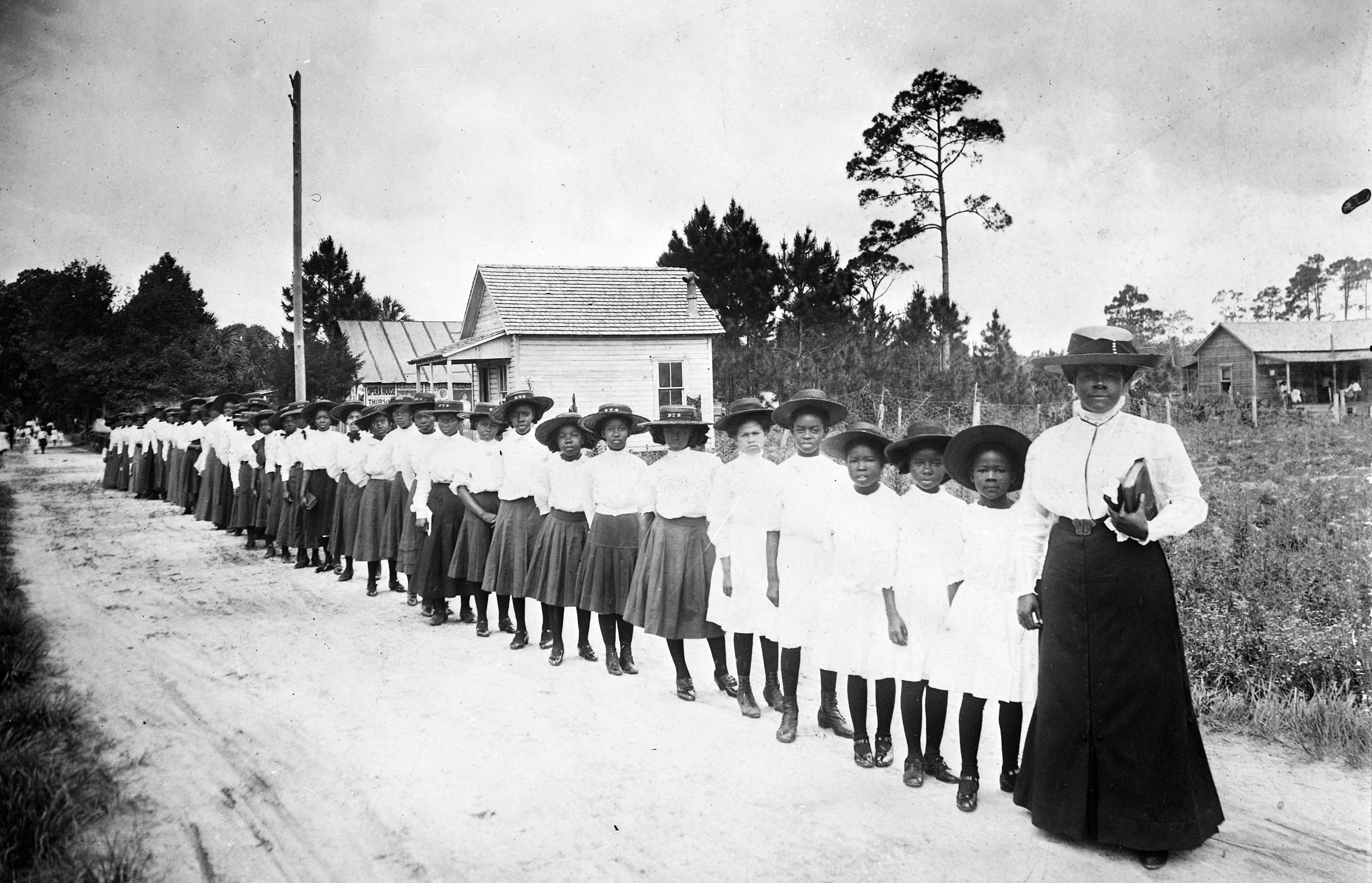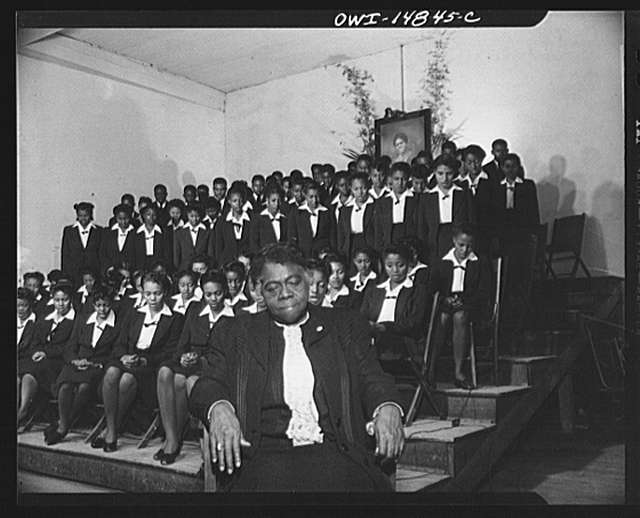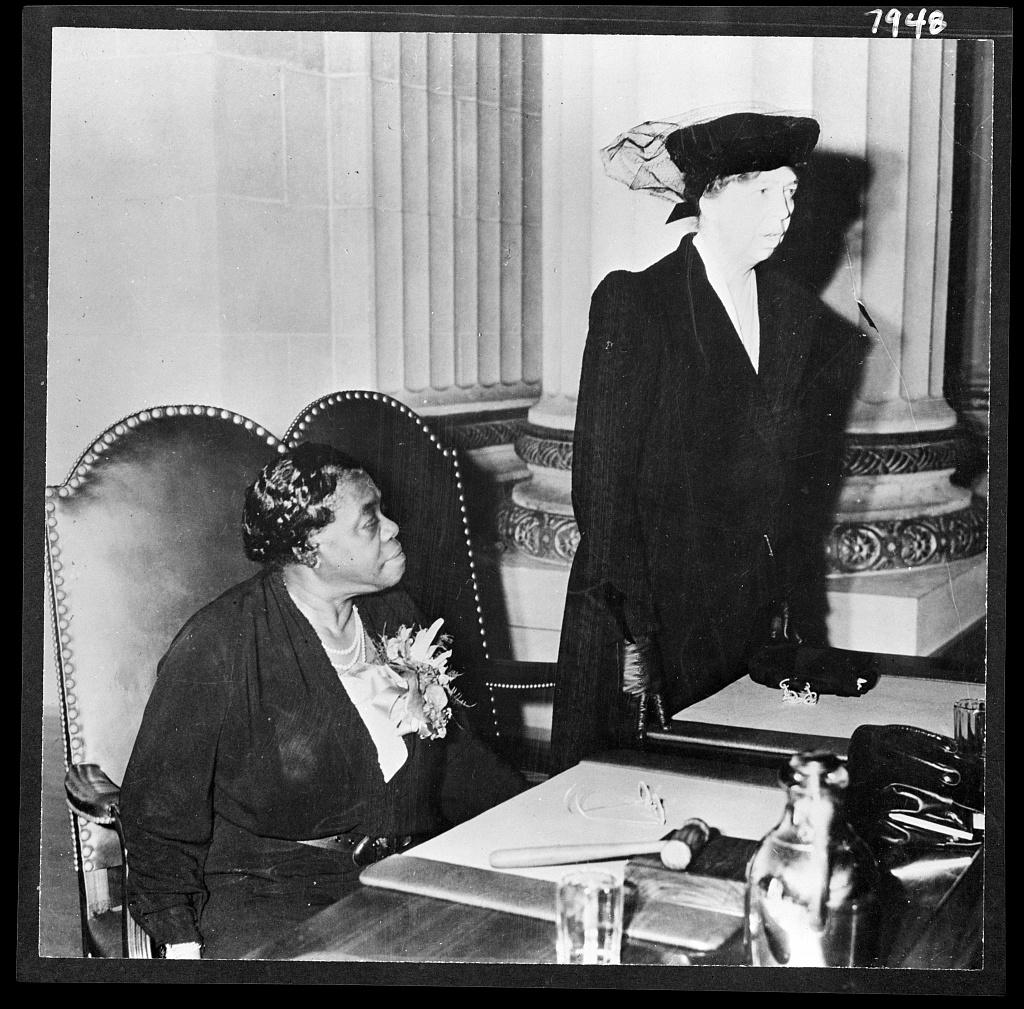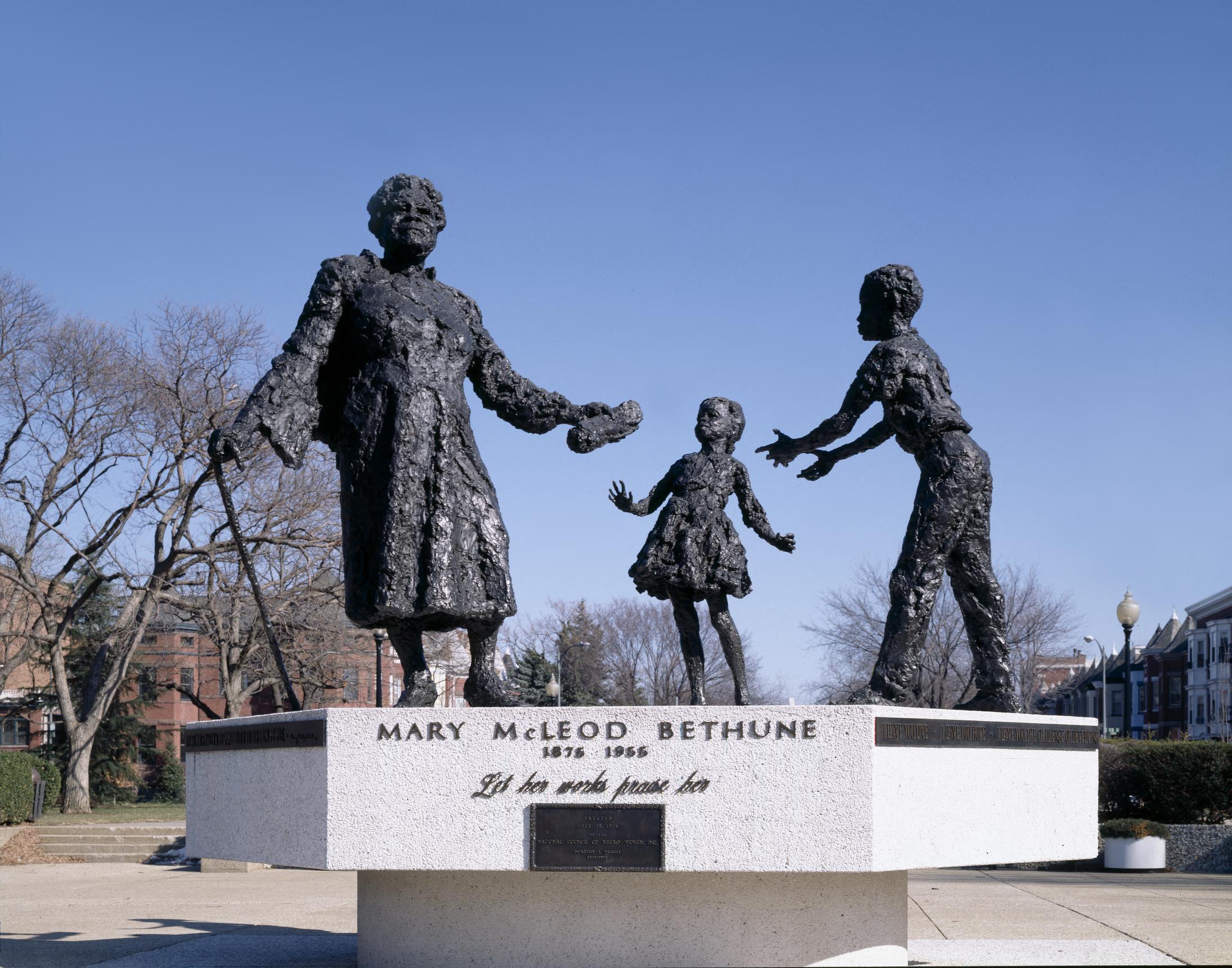*Ad Free Videos for as little as $1/Month Subscription!!*
Leading with Purpose: The Life and Legacy of Mary McLeod Bethune
By Darius Spearman (africanelements)
About the author: Darius Spearman is a professor of Black Studies at San Diego College, where he has been pursuing his love of teaching since 2007. He is the author of several books, including Between The Color Lines: A History of African Americans on the California Frontier Through 1890. You can visit Darius online at africanelements.org.
The Early Life of Mary McLeod Bethune
Mary McLeod Bethune was the fifteenth of seventeen children born on July 10, 1875, in Mayesville, South Carolina. Her parents, Samuel and Patsy McLeod, were former slaves, and her father worked as a farmer while her mother worked as a laundress. Growing up in a large family, Bethune was instilled with a strong sense of responsibility and a desire to uplift her community. Her parents, former slaves, instilled in her a strong sense of dignity, faith, and a desire for education.
Bethune’s early education began at Scotia Seminary in North Carolina, where she developed a passion for teaching. Her vision was to uplift the African American community through education, especially focusing on young black girls. This vision led her to establish the Daytona Literary and Industrial Training School for Negro Girls in 1904, which later merged with Cookman Institute to become Bethune-Cookman University.

Her leadership was not confined to education alone. Bethune was a prominent civil rights activist, working closely with presidents such as Franklin D. Roosevelt and playing a key role in the New Deal policies. She founded the National Council of Negro Women and became a voice for African Americans during a time when racial segregation and discrimination were rampant.
A quote from Dr. Sheila Y. Flemming’s study, “The Ethical Ambition of Dr. Mary McLeod Bethune: A Ubiquitous Leadership Model,” encapsulates Bethune’s philosophy:
“Bethune believed in the power of education to uplift and empower. She saw education as a means to break the chains of oppression and to foster a sense of self-worth and dignity among African Americans” (Flemming 23).
Her leadership model, as proposed by Flemming, is based on ethical ambition and can guide leaders in making systemic change in the 21st century. It highlights the uniqueness of Bethune’s leadership and proposes a Ubiquitous Leadership Model based on her words and actions.
A Visionary Leader
The Ethical Ambition of Dr. Mary McLeod Bethune
Dr. Mary McLeod Bethune’s life and legacy have been examined in a recent study titled “The Ethical Ambition of Dr. Mary McLeod Bethune: A Ubiquitous Leadership Model” by Sheila Y. Flemming. This study proposes a leadership model based on Bethune’s ethical ambition, using primary and secondary sources to analyze her life and correlate it with the factors of ethical living outlined by scholar Derek Bell. The study argues that Bethune’s legacy deserves a leadership model that can guide leaders in making systemic change in the 21st century (Flemming 21-54).
Mary McLeod Bethune’s leadership was grounded in ethical ambition. She believed in living a life guided by moral principles, integrity, and a commitment to social justice. Her ethical ambition was not about personal gain but about uplifting others and creating a better society.
Bethune’s Leadership Model: A Ubiquitous Approach
Bethune’s leadership was unique, and her words and actions have led to the proposal of a Ubiquitous Leadership Model. This model emphasizes the importance of ethical living, systemic change, and the ability to lead in various contexts and environments.

Her leadership model, as outlined in Flemming’s study, consists of several key factors:
- Visionary Leadership: Bethune had a clear vision for the future and worked tirelessly to make it a reality. Her focus on education and empowerment of African Americans set the stage for significant social change.
- Ethical Living: She lived her life with integrity and honesty, always striving to do what was right. Her ethical stance was a guiding force in her leadership.
- Social Justice Advocacy: Bethune fiercely advocated social justice, fighting against racial discrimination and working towards equality. Her efforts in the civil rights movement laid the groundwork for future generations.
- Community Engagement: She believed in the power of community and worked to build strong connections with those she served. Her work in education and community development had a lasting impact.
- Inspirational Leadership: Bethune inspired others through her words and actions. Her leadership was not about authority but about inspiring others to follow her lead.
Flemming’s study argues that Bethune’s legacy deserves a leadership model that can guide leaders in the 21st century. Her Ubiquitous Leadership Model is a testament to her enduring impact and relevance. Her life and work continue to resonate with the current efforts to promote diversity and inclusion in higher education, laying the groundwork for the Civil Rights Movement and shaping the nation’s approach to racial equality. Her impact continues to be felt, and her leadership model serves as a beacon for those striving to change the world positively.
Mary McLeod Bethune: A Passion for Education
Bethune’s passion for education was ignited at an early age. She attended Scotia Seminary in North Carolina, where she developed a strong foundation in academics and leadership. Her education continued at Moody Bible Institute in Chicago, where she trained as a missionary. However, her path took a different turn when she realized that her calling was to educate African American children in the South.
In 1904, Bethune founded the Daytona Educational and Industrial Training School for Negro Girls in Daytona Beach, Florida. Starting with just five students and $1.50, she transformed a small rented house into a thriving educational institution. Her vision was clear: to provide quality education to black girls, equipping them with skills and knowledge to lead successful lives.
The school’s success attracted attention and support, eventually merging with Cookman Institute of Jacksonville, Florida, to become Bethune-Cookman University. Today, it stands as a testament to Bethune’s dedication and vision, offering a wide range of academic programs to students of all backgrounds.
Bethune’s commitment to education extended beyond the classroom. She believed that education was the key to racial advancement and worked tirelessly to promote educational opportunities for African Americans. Her efforts led to her appointment as the president of the National Association of Colored Women (NACW) and later the founding president of the National Council of Negro Women (NCNW).
A Political Force
Advocacy for Civil Rights
Bethune’s advocacy for civil rights was relentless. She was a vocal critic of racial segregation and discrimination and worked tirelessly to promote equality. Her efforts were not limited to political advocacy; she was also involved in grassroots movements and community organizing.
Her work in the civil rights movement laid the groundwork for future generations. She pioneered the fight for equality, and her legacy continues to inspire activists today.
Dr. Sheila Y. Flemming emphasizes Bethune’s commitment to civil rights in her study:
“Bethune’s advocacy for civil rights was not a fleeting interest; it was a lifelong commitment. She understood the importance of political engagement and used her influence to fight for justice and equality” (Flemming 34).
Impact on Economic Justice
Bethune’s influence extended to economic justice as well. She understood the economic challenges faced by African Americans and worked to create opportunities for economic empowerment. Her efforts in promoting economic justice were aligned with her belief in education and empowerment.
She advocated for fair employment practices and worked to ensure that African Americans had access to jobs and economic opportunities. Her work in economic justice resonates with current efforts to promote economic equality.
Bethune’s Influence in the Roosevelt Administration

Mary McLeod Bethune’s influence reached the highest levels of government. During the Great Depression, she became a close advisor to President Franklin D. Roosevelt and played a pivotal role in shaping policies that affected African Americans. As a member of Roosevelt’s “Black Cabinet,” she advocated for racial equality and worked to ensure that New Deal programs were accessible to African Americans. This informal group of African American public policy advisors worked to ensure that the New Deal policies were inclusive and addressed the specific needs of the Black community during the Great Depression.
Bethune’s relationship with Eleanor Roosevelt, the First Lady, was instrumental in bridging the gap between the African American community and the White House. Together, they worked on various social and economic initiatives that benefited both black and white Americans.
One of the significant impacts of Bethune’s work during this period was her influence on how the Great Depression affected black women and what black women did about it. Her advocacy ensured that the concerns and needs of black women were addressed at the national level.
Literary Contributions and International Advocacy
In addition to her leadership and activism, Mary McLeod Bethune left a profound impact through her literary contributions and international advocacy. Bethune’s voice resonated beyond speeches and actions; she also utilized the written word to inspire change.
Her powerful speeches, like “What Does American Democracy Mean to Me?”, delivered at the 1945 founding conference of the United Nations, highlighted the challenges African Americans faced and underscored the urgent need for equality and justice. This historic speech, documented in Mary McLeod Bethune: Building a Better World, Essays and Selected Documents by Audrey Thomas McCluskey and Elaine M. Smith, remains a testament to her unwavering dedication to the cause.
Bethune’s advocacy extended internationally, where she championed global solidarity and unity among people of African descent. Recognizing the interconnectedness of racial struggles, she worked to forge ties between African Americans and individuals of African descent in other countries. Her commitment to this cause is detailed in Mary McLeod Bethune: A Biography by Eloise Greenfield.
A Legacy Preserved: The Mary McLeod Bethune Council House

Bethune’s legacy is preserved in the Mary McLeod Bethune Council House National Historic Site in Washington, D.C. This site, which served as the first headquarters of the NCNW, is a testament to her life’s work. It houses artifacts, documents, and exhibits that tell the story of her remarkable journey.
Visitors to the Council House can explore Bethune’s contributions to education, civil rights, women’s empowerment, and international affairs. It serves as a tangible reminder of her enduring impact and a source of inspiration for future generations.
Conclusion: A Beacon of Hope and Change
Mary McLeod Bethune’s life and legacy are a beacon of hope and change. Her unwavering commitment to education, civil rights, women’s empowerment, and global solidarity has left an indelible mark on history. Her leadership model, as articulated by Dr. Sheila Y. Flemming, offers a timeless guide for ethical and purpose-driven leadership (Flemming 45).
Bethune’s work continues to resonate with contemporary struggles and triumphs. Her vision, courage, and compassion continue to inspire and challenge us to lead with purpose and make a meaningful difference in our communities.
In the words of Bethune herself, “Invest in the human soul. Who knows, it might be a diamond in the rough.” Her investment in the human soul has indeed unearthed many diamonds, and her legacy continues to shine brightly, guiding us toward a more just and equitable future. Her story is not just a chapter in history but a living testament to the power of determination, faith, and love.
Works Cited
Flemming, Sheila Y. “The Ethical Ambition of Dr. Mary McLeod Bethune: A Ubiquitous Leadership Model.” Phylon (1960-), vol. 59, no. 2, 2022, pp. 21–54. JSTOR, https://www.jstor.org/stable/27180574. Accessed 23 Aug. 2023.
“Affirmative Action and the Future of Racial Diversity in Higher Education.” African Elements, Link.
“Freedom in Black and White.” African Elements, Link.
“From the Cotton Fields to the Assembly Line: How Black Workers Fought for Economic Justice Against All Odds.” African Elements, Link.
“The History and Impact of Black-Owned Businesses in America: How Early Black Entrepreneurs Shaped America’s Business Landscape.” African Elements, Link.
Greenfield, Eloise. Mary McLeod Bethune: A Biography. HarperCollins, 1977.
